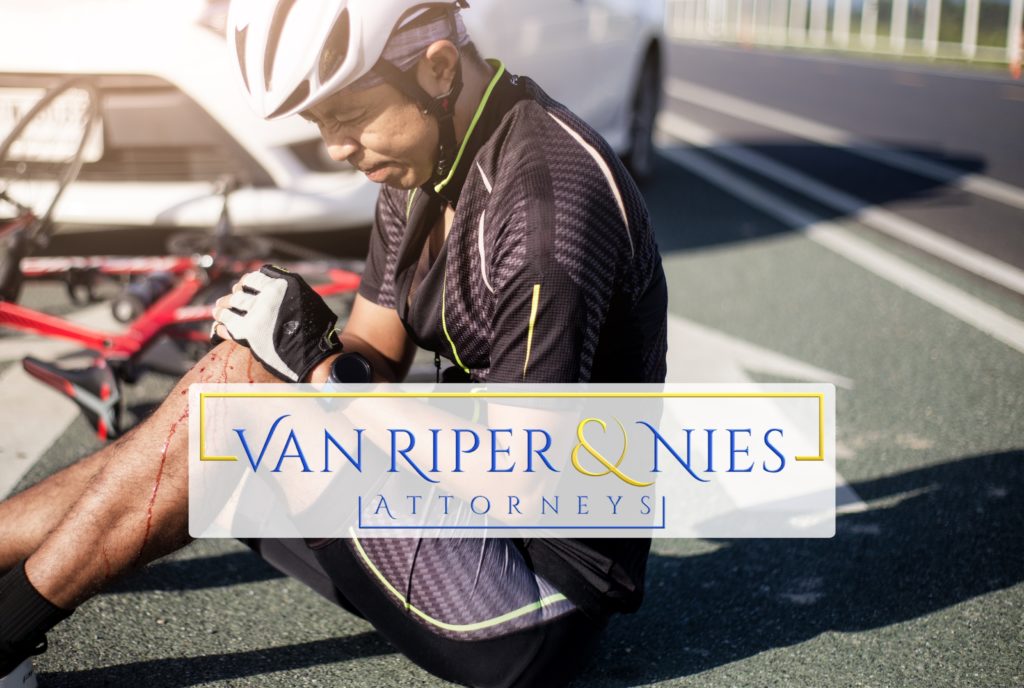
If you have been injured in a motor vehicle vs. bicycle accident, it is sound advice to hire a personal injury attorney experienced in litigating Florida bicycle accident injury claims. Following the opening of an injury claim with an insurance company, an insurance adjuster will be assigned to your case. This adjuster will right away attempt to take your recorded statement, This recorded statement is not taken to help you out. It is taken to help out the insurance company and to use against you later.
Insurance companies typically “delay, deny and defend” claims. This is the title of a book I have read many years ago by Jay Feinman. The claims adjuster does not exist to help you, the injured bicyclist. The insurance adjuster represents the insurance company’s financial interests, so he or she will attempt to resolve the claim for as cheaply as possible, or to deny it altogether. Keep this in mind when you speak with claims adjusters.
When it comes to accident claims, Florida is a “no-fault” state, which means that you are expected to use your own automobile insurance for medical coverage for injuries sustained in the accident. After that you can file a negligence claim against the at-fault driver who caused your injuries. Even if the accident was partially your fault, you may file a claim. For instance, if a jury finds the other driver 75% at fault, you will receive 75% of the award.
Florida Bike Laws
Here is an overview of the bicycle laws in Florida, which are fond on Florida Statutes Section 316.2065.
(1) Every bicyclist has all of the rights and all of the duties applicable to the driver of any other vehicle
(2) A person operating a bicycle may not ride other than upon or astride a permanent and regular seat attached thereto.
(3) A bicycle may not be used to carry more persons at one time than the number for which it is designed or equipped, except that an adult rider may carry a child securely attached to his or her person in a backpack or sling.
(4) A bicycle rider or passenger who is under 16 years of age must wear a bicycle helmet that is properly fitted and is fastened securely upon the passenger’s head by a strap and that meets the federal safety standard for bicycle helmets.
(5) Any bicyclist on a road at less than the normal speed of traffic at the time shall ride in the lane marked for bicycle use or, if no lane is marked for bicycle use, as close as practicable to the right-hand curb or edge of the roadway except under any of the following situations:
1. When passing another bicycle or vehicle proceeding in the same direction.
2. When preparing for a left turn at an intersection or into a private road or driveway.
3. When reasonably necessary to avoid any condition or potential conflict.
(6) Persons riding bicycles upon a roadway may not ride more than two next to each other except on paths or parts of roadways set aside for the exclusive use of bicycles.
(7) Every bicycle in use between sunset and sunrise shall be equipped with a light on front exhibiting a white light visible from a distance of at least 500 feet to the front and a lamp and reflector on the rear each exhibiting a red light visible from a distance of 600 feet to the rear.
(8) No parent of any minor child may authorize or knowingly permit any such minor child or ward to violate any of the provisions of this section.
(9) A bicyclist riding on a sidewalk, or across a roadway upon and along a crosswalk, has all the rights and duties applicable to a pedestrian under the same circumstances.
(10) A bicyclist on a sidewalk, or across a roadway upon and along a crosswalk, shall yield the right-of-way to any pedestrian and shall give an audible signal before overtaking and passing such pedestrian.
(11) Every bicycle shall be equipped with a brake or brakes which will enable its rider to stop the bicycle within 25 feet from a speed of 10 miles per hour on dry, level, clean pavement.
(12) The failure of a bicyclist to wear a helmet or the failure of a parent or guardian to prevent a child from riding a bicycle without a bicycle helmet may not be considered evidence of negligence or contributory negligence.
Damages of Bicyclists in Florida Personal Injury Cases
Injured bicyclists may seek compensation for damages sustained in motor vehicle vs bicycle accidents, including medical bills, nursing expenses, disability, pain and suffering, mental anguish, loss of enjoyment of life, emotional and psychological distress, PTSD, and other damages.
Pain and suffering damages in Florida are different from other types of compensable damages in an auto accident case. Medical bills and loss of wages have pay stubs, receipts, and other documents as proof. There are no receipts or documents for pain and suffering. Jurors consider multiple factors when calculating pain and suffering damages, including the severity of the physical injuries, the age of the injured bicyclist, the amount of economic loss suffered, the severity of the injuries, among other methods. Contact a personal injury lawyer for more information on damages in bike accident claims, including claims of spouses for loss of services and consortium.
Calculating Pain and Suffering Damages in Bicycle Accident Cases
In many court cases, the value of pain and suffering damages are calculated using a “multiplier” approach. For example, our lawyers may use the economic damages and multiple those damages by a particular number (say between one and 10). By way of example, if the economic damages add up to $125,000 and a multiplier of 5 is utilized, the trial lawyer would argue in negotiations, mediation, and jury trial that the injured bicyclist is entitled to $625,000 in pain and suffering damages ($125,000 x 5).
Statute of Limitations on Bicycle Injury Cases
The state of limitations in Florida for bicycle accident injury cases is four years from the date of the incident. There are some exceptions, for example in wrongful death cases and extra steps that need to be undertaken in certain situations, for example, if you sue the State of Florida. Make sure to speak with an attorney right away. Deadlines are deadlines.
Steps to Take after a Bicycle Crash
To put your claim in the best position to succeed after an accident, and to build your strongest case, consider the following:
- Call the police to make a report at the scene of the crash. This helps in identifying and obtaining evidence. The report will also provide names and addresses of all involved parties and witnesses. The investigation will also help determine causes of the crash, such as distracted driving, texting while driving and driving under the influence.
- Take down the names and contact information of all witnesses to the crash. Don’t rely on the police taking down the names, addresses and phone numbers of these witnesses.
- Take photographs and videos of the scene of the crash, including all vehicles involved, from all angles, as well as your bicycle. Remember to email the photos and videos to yourself in case you every lose the photos and videos on your phone or in the cloud.
- Take photographs and video of your injuries. Your personal injury attorney will need these at all stages of your bicycle accident injury claim.
- Do not repair your bicycle. Cover it, and keep it, while the claim is proceeding. This may be very important evidence that your personal injury lawyer will need. Also, keep your clothing you were wearing, shoes, bike lights, helmet, etc. and do not clean or wash them.
- Obtain medical assistance right away. Obviously, if you feel injured at the scene, request transport to the hospital or have a friend or family member take you. You may feel like waiting it out to see if your pain or issues will resolve. I suggest setting an appointment right away with your family doctor, or if you do not wish to go to an emergency room, at least to a walk-in clinic. They will pay for the visit using your auto insurance or health insurance.
- You may notify your own insurance, however, do not speak with any insurance company representative insuring the driver who was involved in the bicycle accident without first speaking with a bicycle accident lawyer.
- If a car insurance company adjuster, or lawyer, requests that you undergo an “independent medical evaluation” (IME) before filing a bicycle accident injury claim, do not agree to do so without consulting with a lawyer first.
 For more information about Florida bicycle accident injury claims, call attorney Tim Nies of Van Riper and Nies Attorneys day or night. Tim is an Army Ranger Veteran and a former lead insurance defense trial attorney. Tim provides free consultations 24 hours/day. Van Riper and Nies Attorneys has offices in Boca Raton, Deerfield Beach, Delray Beach, West Palm Beach and Stuart, Florida.
For more information about Florida bicycle accident injury claims, call attorney Tim Nies of Van Riper and Nies Attorneys day or night. Tim is an Army Ranger Veteran and a former lead insurance defense trial attorney. Tim provides free consultations 24 hours/day. Van Riper and Nies Attorneys has offices in Boca Raton, Deerfield Beach, Delray Beach, West Palm Beach and Stuart, Florida.